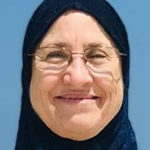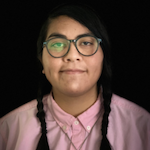Before watching a TED Lecture, she posted its title and URL on Blackboard LMS. She summarized its content, gave some vocabulary overview and pre-questions to help the students focus on the lecture content, she set goals for watching a TED lecture and told the students what they needed to do and focus on.
The students viewed the TED lectures on their smartphones or on a smart TV in the classroom. While watching a lecture, the students answered listening comprehension questions. After watching a TED lecture, the comprehension questions were discussed.
Results of the posttest showed significant improvement in the students’ listening ability as a result of the TED listening practice sessions. TED lectures provided a variety of real-life themes, subject areas, speakers and English accents. They bring listening courses alive and allow learners to use their visual and auditory senses to learn complex concepts (Hartsell and Yuen, 2006). They save instructors’ time and effort as they are available on YouTube and instructors do not have to prepare any lecture videos. Instructors can share the TED Lectures they find useful with colleagues. Results of the experiment will be reported in detail.
A recording of this presentation is available.
Click the button to the right to access the session archive.

 Reima Al-Jarf has taught ESL, ESP, linguistics and translation at King Saud University, Riyadh, Saudi Arabia for 26 years. She has 700 publications and conference presentations in 70 countries. She reviews articles for numerous peer-reviewed international journals including some ISI journals. She won 3 Excellence in Teaching Awards, and the Best Faculty Website Award at her university. Her areas of interest are: Foreign language teaching and learning, technology integration in education and translation studies.
Reima Al-Jarf has taught ESL, ESP, linguistics and translation at King Saud University, Riyadh, Saudi Arabia for 26 years. She has 700 publications and conference presentations in 70 countries. She reviews articles for numerous peer-reviewed international journals including some ISI journals. She won 3 Excellence in Teaching Awards, and the Best Faculty Website Award at her university. Her areas of interest are: Foreign language teaching and learning, technology integration in education and translation studies. Ronnie Tiffany-Kinder is a teacher educator in elementary education at the University of Hawaii at Manoa. She teaches courses in literacy methods and introduction to teaching. She also supervises student teachers on Oahu, Kauai and Lanai. Her research interests include critical literacy, self-study in teacher education and online/distance learning education.
Ronnie Tiffany-Kinder is a teacher educator in elementary education at the University of Hawaii at Manoa. She teaches courses in literacy methods and introduction to teaching. She also supervises student teachers on Oahu, Kauai and Lanai. Her research interests include critical literacy, self-study in teacher education and online/distance learning education. Dr. Rayna Fujii is an Assistant Specialist and Statewide Coordinator for the Institute for Teacher Education Elementary Department. She teaches courses in elementary social studies, introduction to multicultural education, and introduction to teaching. Her research interests include elementary social studies education, social studies for social justice, and online/distance learning education.
Dr. Rayna Fujii is an Assistant Specialist and Statewide Coordinator for the Institute for Teacher Education Elementary Department. She teaches courses in elementary social studies, introduction to multicultural education, and introduction to teaching. Her research interests include elementary social studies education, social studies for social justice, and online/distance learning education. Dr. Cameron is a professor at Purdue University, Global and has been in education for over 25 years. She has taught in both online and on-ground settings. Dr. Cameron seeks to engage and inspire students by making education fun and interesting. She has won educational awards for innovation in the classroom.
Dr. Cameron is a professor at Purdue University, Global and has been in education for over 25 years. She has taught in both online and on-ground settings. Dr. Cameron seeks to engage and inspire students by making education fun and interesting. She has won educational awards for innovation in the classroom. Siobhán Ní Dhonacha is an Assistant Faculty Specialist for the Honors Program and Regents and Presidential Scholars, and a Truth, Racial Healing and Transformation (TRHT) Fellow. Indigenous Irish, Dr. Siobhán was born and raised in Dublin, Ireland.
Siobhán Ní Dhonacha is an Assistant Faculty Specialist for the Honors Program and Regents and Presidential Scholars, and a Truth, Racial Healing and Transformation (TRHT) Fellow. Indigenous Irish, Dr. Siobhán was born and raised in Dublin, Ireland.
 Mellissa Lochman was born and raised on the island of Molokai, Hawaiʻi. After 8 years in the Air Force, she returned home to Hawaiʻi to continue her education. Upon receiving her B.A. in Creative Media from the University of Hawaiʻi – West Oʻahu (UHWO) and working as a student employee, she decided to continue a career in education. She is currently a third-year LTEC masterʻs student who provides graphic art to the UHWO Student Life department and teaches students introductory graphic art skills as an online lecturer.
Mellissa Lochman was born and raised on the island of Molokai, Hawaiʻi. After 8 years in the Air Force, she returned home to Hawaiʻi to continue her education. Upon receiving her B.A. in Creative Media from the University of Hawaiʻi – West Oʻahu (UHWO) and working as a student employee, she decided to continue a career in education. She is currently a third-year LTEC masterʻs student who provides graphic art to the UHWO Student Life department and teaches students introductory graphic art skills as an online lecturer. Kūʻiʻolani Cotchay is a graduate student in the M. Ed. Learning Design and Technology program at the University of Hawaiʻi at Mānoa, where she received a BA in Hawaiian Studies. She is an alternative educator, interested in creating and fostering learning environments external to the typical classroom. Future plans include creating an online Girls Rock Camp, developing educational content for Kānaka Maoli, and obsessing more about Kānaka Color Theory.
Kūʻiʻolani Cotchay is a graduate student in the M. Ed. Learning Design and Technology program at the University of Hawaiʻi at Mānoa, where she received a BA in Hawaiian Studies. She is an alternative educator, interested in creating and fostering learning environments external to the typical classroom. Future plans include creating an online Girls Rock Camp, developing educational content for Kānaka Maoli, and obsessing more about Kānaka Color Theory. Marcie Moura is a second year LTEC master’s student at the University of Hawaiʻi at Mānoa. For the past five years she has been teaching digital art at a private school in Honolulu, Hawai‘i. In her spare time she enjoys knitting and teaching others how to knit.
Marcie Moura is a second year LTEC master’s student at the University of Hawaiʻi at Mānoa. For the past five years she has been teaching digital art at a private school in Honolulu, Hawai‘i. In her spare time she enjoys knitting and teaching others how to knit. Jade Lum is a Ph.D. student and Graduate Assistant in English at the University of Hawaiʻi at Mānoa, where she also received her Master’s degree in English with a focus on literary studies. At the University of Hawaiʻi at Mānoa she teaches first-year writing composition, and has also taught an Introduction to Literature course with a focus on the fairy tale genre. Most recently, she published chapter work in the book Contemporary Fairy-Tale Magic: Subverting Gender and Genre. Her research interests include fairy tale studies, gender studies, adaptation studies, and visual and new media storytelling and rhetoric, particularly drawing from film and video game studies.
Jade Lum is a Ph.D. student and Graduate Assistant in English at the University of Hawaiʻi at Mānoa, where she also received her Master’s degree in English with a focus on literary studies. At the University of Hawaiʻi at Mānoa she teaches first-year writing composition, and has also taught an Introduction to Literature course with a focus on the fairy tale genre. Most recently, she published chapter work in the book Contemporary Fairy-Tale Magic: Subverting Gender and Genre. Her research interests include fairy tale studies, gender studies, adaptation studies, and visual and new media storytelling and rhetoric, particularly drawing from film and video game studies. Jaymian (Jaymi) Urashima is currently a PhD student at the University of Hawaii at Manoa in the Learning Design and Technology (LTEC) department. She completed her BA and MA at the University of Hawaii at Manoa in the Communicology department. Jaymi currently works as an Instructor/Course Director in the Communicology department, where she teaches public speaking and a variety of communication-related courses.
Jaymian (Jaymi) Urashima is currently a PhD student at the University of Hawaii at Manoa in the Learning Design and Technology (LTEC) department. She completed her BA and MA at the University of Hawaii at Manoa in the Communicology department. Jaymi currently works as an Instructor/Course Director in the Communicology department, where she teaches public speaking and a variety of communication-related courses. Dan Boulos is a classically trained animator and story artist with screen credits including Beauty and the Beast (Walt Disney Feature Animation), Space Jam (Warner Brothers Feature Animation) and The Prince of Egypt (DreamWorks Feature Animation). After more than a decade in the feature film industry in Los Angeles Dan moved to Honolulu where he founded Wiki Wiki Cartoons. During his years in Hawaii he developed animation programs for the University of Hawaii Community College System as well UH Manoa, the 4-year research campus. Also, Dan was a founding member of the European Animation Masterclass (EAM) a project of the European Media Fund which trained professional animators from EU member states. Dan has a Masters degree in Education (M.Ed. 2010) from the University of Hawaii at Manoa and a BFA from Cal Arts Character Animation (1989). His writing has been published in academic journals in both education and computer graphics and he has presented at academic conferences in the US, Spain and Switzerland. Dan has taught courses in traditional hand drawn full-animation as well as 3D CG-animation and various digital 2D and hybrid techniques. He is an active artist and filmmaker while continuing his work in animation scholarship.
Dan Boulos is a classically trained animator and story artist with screen credits including Beauty and the Beast (Walt Disney Feature Animation), Space Jam (Warner Brothers Feature Animation) and The Prince of Egypt (DreamWorks Feature Animation). After more than a decade in the feature film industry in Los Angeles Dan moved to Honolulu where he founded Wiki Wiki Cartoons. During his years in Hawaii he developed animation programs for the University of Hawaii Community College System as well UH Manoa, the 4-year research campus. Also, Dan was a founding member of the European Animation Masterclass (EAM) a project of the European Media Fund which trained professional animators from EU member states. Dan has a Masters degree in Education (M.Ed. 2010) from the University of Hawaii at Manoa and a BFA from Cal Arts Character Animation (1989). His writing has been published in academic journals in both education and computer graphics and he has presented at academic conferences in the US, Spain and Switzerland. Dan has taught courses in traditional hand drawn full-animation as well as 3D CG-animation and various digital 2D and hybrid techniques. He is an active artist and filmmaker while continuing his work in animation scholarship. Jeff Anderson grew up in San Jose, CA. Upon receiving his B.S. in Business Marketing from San Jose State University, he then moved to Arizona to start his career in Financial Aid. Jeff’s past work experiences involve multiple types of post-secondary institutions from private to public, and as a third party to on campus work. Finally bringing him to Kauai Community College as the Director of Financial Aid 7 years ago. He is a third-year LTEC master’s student at the University of Hawaiʻi at Mānoa who actively manages the Financial Aid office in the process of assisting students finance their pursuit of their educational dreams.
Jeff Anderson grew up in San Jose, CA. Upon receiving his B.S. in Business Marketing from San Jose State University, he then moved to Arizona to start his career in Financial Aid. Jeff’s past work experiences involve multiple types of post-secondary institutions from private to public, and as a third party to on campus work. Finally bringing him to Kauai Community College as the Director of Financial Aid 7 years ago. He is a third-year LTEC master’s student at the University of Hawaiʻi at Mānoa who actively manages the Financial Aid office in the process of assisting students finance their pursuit of their educational dreams. Growing up in Japan as an American and completing his education in the Japanese school system from kindergarten through high school was a life-changing experience, one that generated a fascination with technology, a passion for science fiction and his present professional dedication to international education and its inherent intercultural challenges. Casey Bales obtained his BBA at the Shidler College of Business and then began his career at Hawaii Tokai International College in the International Programs department where he creates educational programs for students of all ages. Now finishing up his LTEC master’s at the University of Hawaiʻi at Mānoa, he hopes to continue his path in education by applying what he’s learned to enhance educational practices in Japan and beyond.
Growing up in Japan as an American and completing his education in the Japanese school system from kindergarten through high school was a life-changing experience, one that generated a fascination with technology, a passion for science fiction and his present professional dedication to international education and its inherent intercultural challenges. Casey Bales obtained his BBA at the Shidler College of Business and then began his career at Hawaii Tokai International College in the International Programs department where he creates educational programs for students of all ages. Now finishing up his LTEC master’s at the University of Hawaiʻi at Mānoa, he hopes to continue his path in education by applying what he’s learned to enhance educational practices in Japan and beyond.